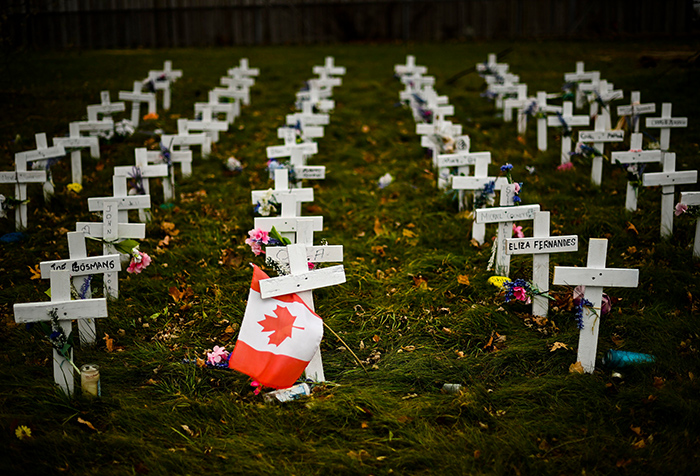2021 Canadian Hillman Prize Winner

“Why was Ottawa caught so off-guard?” That is the question that launched Globe and Mail reporter Grant Robertson’s unparalleled investigation into what went wrong with Canada’s COVID-19 pandemic response.
He delved into the Public Health Agency’s world-renowned pandemic early warning and response system called the Global Public Health Intelligence Network (GPHIN) and discovered that it failed — just when Canadians needed it most.
Unknown to most Canadians, the GPHIN was a highly effective combination of machine learning and human analysis that helped during SARS, H1N1 and many other threats. Its goal was to gather and share unofficial intelligence in cases where certain countries were inclined to hide outbreaks, so that Canada, other countries, and the WHO could act faster as a problem grew.
But when COVID-19 struck, the federal government seemed to misjudge the urgency of the situation. Throughout January, February and most of March, the government repeatedly insisted — quoting its own internal risk assessments — that the outbreak posed only a “low” risk to Canadians, even as COVID-19 was spreading aggressively around the world, with mounting evidence of human-to-human transmission. Even when the WHO changed its rating to “high” at the end of January, Canada maintained its low-risk rating for another seven weeks, until mid-March, when it began urging Canadians to physically distance.
It turned out that something was wrong inside the Public Health Agency. Less than seven months before COVID-19 began, the government had silenced the GPHIN early warning system and shuttered key parts of its operations. Analysts were reassigned to domestic projects that the government considered more valuable, such as studying the impact of vaping in Canada.

In his quest to find out how and why this happened, Robertson drew upon more than 8,000 pages of records obtained from sources, more than a dozen Access to Information requests, and more than 200 hours of interviews with over 60 people in five countries. A key element of his work was protecting sources, since so many of the scientists believed they were risking their careers for speaking out or passing along documents.
Robertson discovered that scientists weren’t being listened to and their warnings weren’t being passed up the chain of command. Those who tried to raise alarms about COVID-19 told Robertson that critical information had to be “dumbed down” because a surprising number of senior department officials lacked any background in public health. Expertise had been devalued, and crucial defence mechanisms didn’t work as they should have.
In the face of Robertson’s meticulous reporting, and after trying to shut down the investigation, Public Health was finally forced to acknowledge it had made this colossal error. The Public Health Agency President, Vice-President and the Senior Director overseeing pandemic preparedness were replaced. Two separate federal investigations have been launched, and within days of publication, the government quickly brought GPHIN’s alert mechanisms back to life after 440 days of silence.
All of the policy failures of COVID-19, from delays in border closures, shortages in the national emergency stockpile that left front-line health workers needlessly exposed, to the inability to shore up long-term care homes in advance, stem from Canada’s lack of readiness and response. As the agency’s former senior science advisor told Robertson, “People died because of this.”
Because of Robertson’s work, Canada will be better prepared — next time.
Grant Robertson is an investigative reporter with The Globe and Mail. Since joining the newspaper in 2005, his coverage has spanned federal and provincial politics, business and the financial markets, health and science, and various matters of public accountability. His work has exposed regulatory loopholes, weaknesses in government policy, and criminal wrongdoing. In addition to reporting on the Canadian government’s response to the COVID-19 pandemic, his investigations have included the pharmaceutical industry, the opioid crisis, stock manipulation, railway safety, aircraft regulation, and the 911 emergency system. He is based in Toronto.

